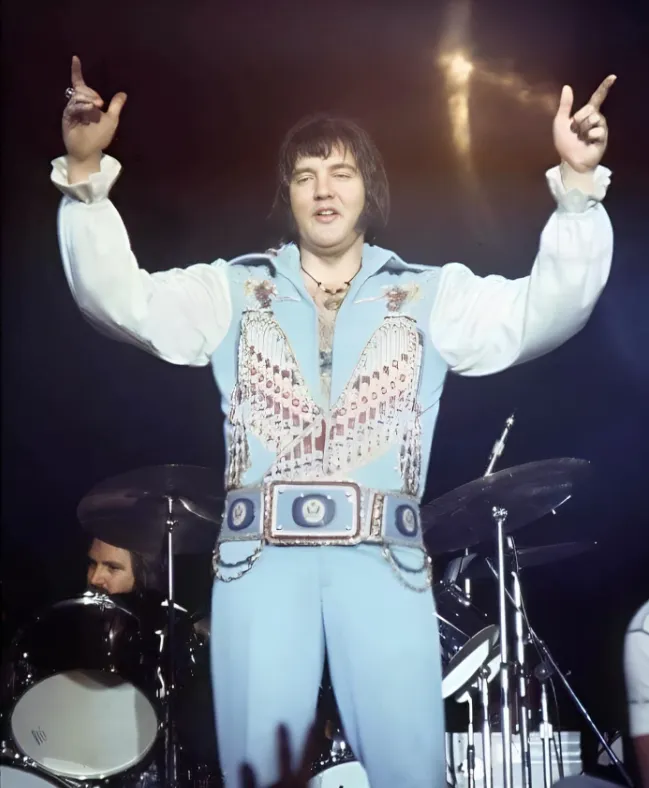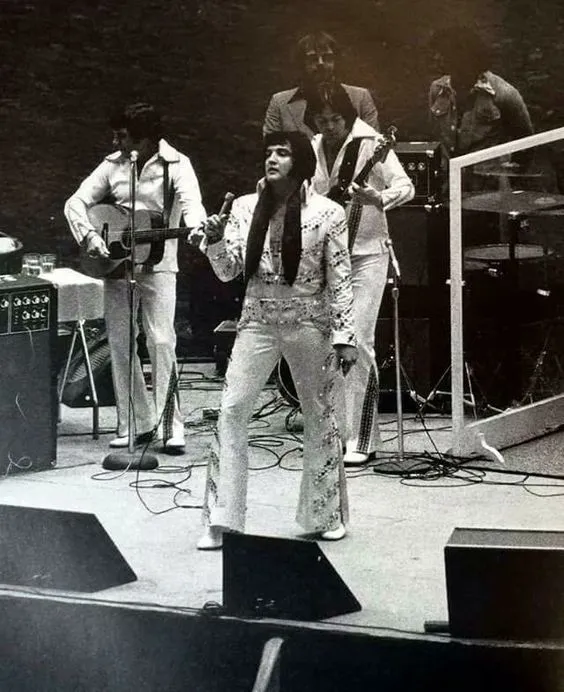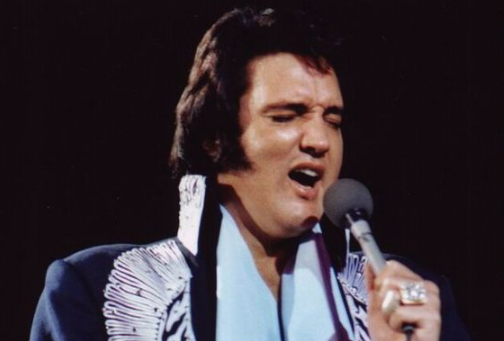The death of Elvis Presley on August 16th, 1977, marked the end of an era and sent shockwaves throughout the world. Elvis, known as the King of Rock and Roll, was one of the most influential and iconic figures in the history of popular music, and his untimely passing left an indelible mark on the hearts of millions of fans.

Elvis Presley was born on January 8th, 1935, in Tupelo, Mississippi, and rose to fame in the 1950s with his unique blend of rock, blues, and gospel music. His charismatic stage presence, electrifying performances, and smooth voice captivated audiences around the globe, earning him legions of devoted fans and making him a cultural phenomenon.
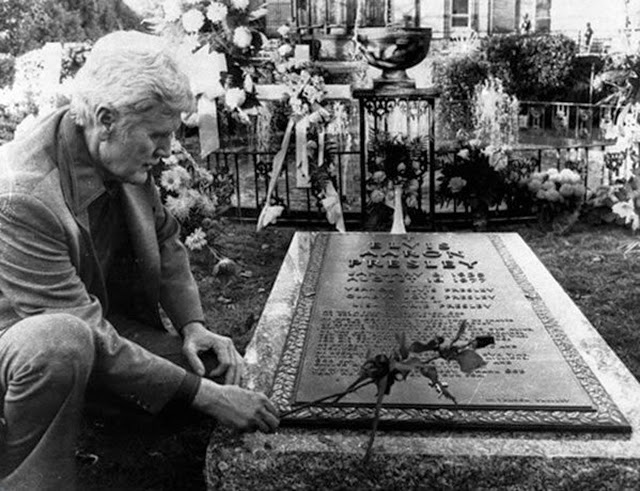.jpg)
By the 1970s, Elvis had achieved unprecedented success, with a string of hit records, sold-out concerts, and a slew of awards and accolades to his name.
.jpg)
However, behind the glitz and glamour of his public persona, Elvis was struggling with personal demons, including health issues, addiction, and the pressures of fame.
.jpg)
On the evening of August 16th, 1977, Elvis was found unresponsive in the bathroom of his Graceland mansion in Memphis, Tennessee. Efforts to revive him were unsuccessful, and he was pronounced dead at the age of 42. The official cause of death was ruled as cardiac arrhythmia, but it was later revealed that Elvis had been battling a number of health problems, including hypertension, liver damage, and an enlarged heart, exacerbated by years of prescription drug abuse.
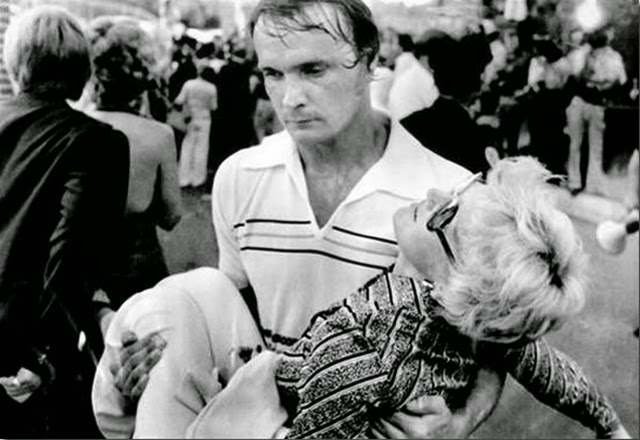.jpg)
News of Elvis' death spread quickly, sending shockwaves throughout the world and prompting an outpouring of grief from fans and celebrities alike. Tributes poured in from all corners of the globe, as people mourned the loss of a musical legend whose impact had transcended generations.
.jpg)
In the days following Elvis' death, an estimated 75,000 mourners lined the streets of Memphis to pay their respects as his funeral procession made its way to Forest Hill Cemetery, where he was laid to rest beside his mother, Gladys, in the Meditation Garden at Graceland. Millions more watched the proceedings on television, as the world bid farewell to one of its brightest stars.
.jpg)
The death of Elvis Presley marked the end of an era in more ways than one. Not only did it signal the passing of a musical icon, but it also symbolized the end of the innocence and optimism of the post-war era. For many fans, Elvis represented a simpler time, when rock and roll was new and exciting, and anything seemed possible. His death served as a stark reminder of the fragility of life and the fleeting nature of fame and fortune.
.jpg)
In the years since Elvis' death, his legacy has only grown stronger. His music continues to inspire and influence artists of all genres, and his image remains an enduring symbol of rebellion, romance, and rock and roll. Graceland, his former home-turned-museum, has become a pilgrimage site for fans from around the world, drawing hundreds of thousands of visitors each year.
.jpg)
Despite his passing, Elvis Presley remains an iconic figure in popular culture, his influence extending far beyond the realm of music. His impact on fashion, film, and even politics is still felt today, and his status as the King of Rock and Roll is unlikely to ever be challenged.
.jpg)
In many ways, Elvis' death marked the end of an era, but it also served as a reminder of the enduring power of his music and the indelible mark he left on the world. As long as there are fans who continue to cherish his memory and celebrate his legacy, Elvis Presley will never truly be gone.
.jpg)

